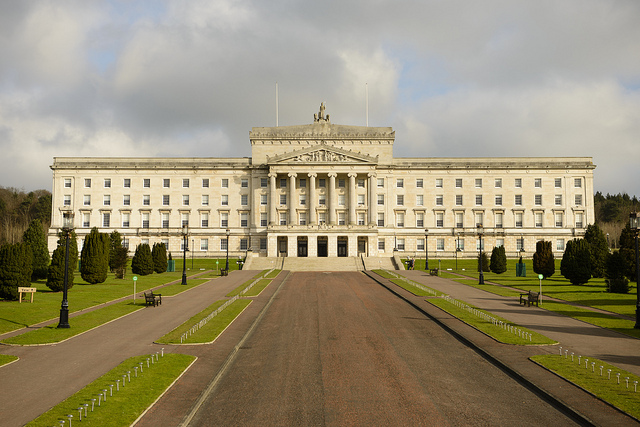How democratic are the institutions of devolved government in Northern Ireland?
As part of the 2017 Audit of UK Democracy, guest contributor Alan Whysall and the Democratic Audit team explore how democratically and effectively the institutions of government have performed in Northern Ireland.

There is a long history of community division within Northern Ireland, which is reflected in voting behaviour. Given this, since the constitutional issue – whether Northern Ireland should remain part of the UK or join a united Ireland – ceased to dominate political life, there has been wide agreement that in order to be able to function, government needs to be acceptable across the community. In practice this means guaranteeing that parties from each side of the community can participate in government, engaging their political energies and obliging them to work together. But as devolution became established, there has been a growing focus on how the system measures up against more conventional criteria for effective democratic government, such as:
- The Executive should be able to set out a coherent vision across the range of devolved responsibilities, and develop and implement a practical and effective set of policies in pursuit of it
- It should in particular tackle cogently the most acute problems of the economy and society, and be capable of responding decisively to events
- It should provide efficient and effective public services
- The Assembly should effectively hold the Executive accountable, through conditional support or reasoned opposition, drawing out views and expertise within different parts of the community to improve policy-making, the delivery of public services and the quality of legislation
- All involved in the institutions should act in the wider public interest, and in particular should practice financial regularity and prudence, and avoid the reality or the appearance of corruption
- The institutions should be recognised by the voting public as meeting these criteria, and as articulating and responding to their concerns
Since the institutions remain fragile, however, democracy also requires a degree of outside stewardship, notably from the British government, but also the Irish government and others, to help keep them functioning.
Article originally appeared on the Democratic Audit UK website.
The featured image has been used courtesy of a Creative Commons license.




